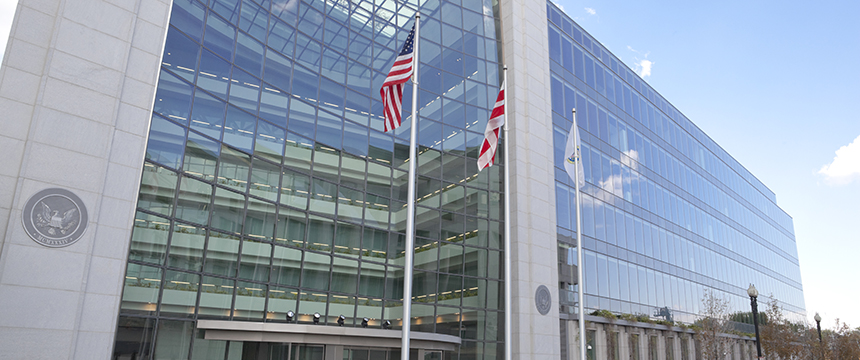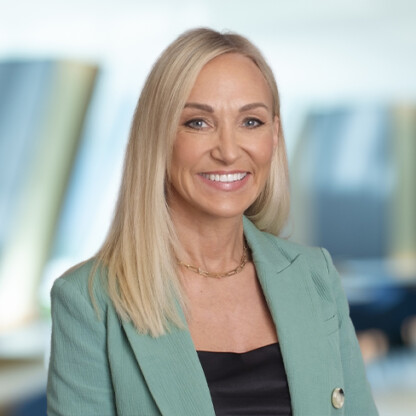SEC Chairman and OMS Director Issue Public Statement on Importance of Disclosure to Municipal Securities Market in Light of COVID-19

SEC Encourages Disclosure of Information Relating to COVID-19
On May 4, 2020, the U.S. Securities and Exchange Commission (the “SEC”) released a Public Statement (the “Statement”)1 from Chairman Jay Clayton and Rebecca Olsen, Director of the SEC’s Office of Municipal Securities (“OMS”), directed primarily to issuers of municipal securities (or conduit borrowers, and for purposes of this article, “obligated persons”) and is intended to parallel the Corporate Issuer Statement issued by the SEC on April 8, 2020 in response to the uncertainties created by COVID-19. The Statement acknowledged there are significant differences between the corporate capital markets and the municipal securities markets (for example, the lack of a regulatory safe harbor for forward-looking statements in a municipal disclosure), but stated that the importance of high quality disclosure, particularly in times of uncertainty, is consistent. According to the Statement, the SEC “believe[s] a similar approach to the provision of current and, to the extent practicable, forward-looking disclosure would provide significant benefits to investors, issuers and the municipal securities market generally.”
Forward-Looking Statements and Associated Cautionary Language
The Statement acknowledged that developing voluntary, unaudited and non-routine disclosure regarding current financial status and operations may be challenging, especially under the current circumstances; however, obligated persons are encouraged to “provide investors with forward-looking information regarding the potential future impact of COVID-19 on their financial and operating conditions.” Meaningful cautionary language should accompany any such disclosure. The cautionary language may include, for example:
- A description of relevant facts and assumptions affecting the reasonableness of reliance on and the materiality of the information provided;
- A description of how certain important information may be incomplete or unknown; and
- The process or methodology (audited vs. unaudited) used to produce the information.
The cautionary language is important both to improve the quality of the disclosure and to reduce legal and other risks associated with the disclosure. An obligated person, in many cases in consultation with legal counsel, will have to carefully draft and include cautionary language as appropriate. The issue of liability often is raised when voluntary disclosures—or the expansion of required disclosures—are considered. The Statement provided some additional comfort by including the following observation: “We would not expect good faith attempts to provide appropriately framed current and/or forward-looking information to be second guessed by the SEC.”
Event Notice Filings Relating to COVID-19
COVID-19 Generic Event Notice. Does every obligated person need to submit a COVID-19 event filing? A March 19, 2020 webinar by the Municipal Securities Rulemaking Board (the “MSRB”), Ahmed Abonamah, Deputy Director of OMS, explained that there is no such requirement under the enumerated events in the SEC’s Rule 15c2-12 (“Rule 15c2-12”) based on the mere fact of the COVID-19 pandemic occurring; however, the recent Statement specified in light of the “potentially significant effects of COVID-19 on the finances and operations of many municipal issuers, we . . . request that municipal issuers provide investors with as much information about their current financial and operating condition as is reasonably practicable.”
Voluntary Filings. Some obligated persons have elected to voluntarily post information on the impact of COVID-19 to its operations and access to liquidity. The Statement addressed the concern that this type of disclosure does not have the benefit of a formal audit process and is based instead on estimates, assumptions and projections regarding future circumstances, and concluded that, “[n]evertheless, providing as much current issuer- and security-specific information as is practicable will benefit issuers, investors and our municipal securities markets more generally.” Many of these filings raise questions about compliance with Rule 15c2-12, which is further discussed here.
Examples of COVID-19 Related Disclosures
Since the outbreak of COVID-19, certain types of disclosures made their way to public filings whether in a primary offering document, a contractually required continuing disclosure filing, or in a voluntary public statement. The SEC noted in the Statement that while the examples listed below are non-exhaustive, the SEC believes that these types of disclosures are “important to provide to investors and the marketplace more generally at this time.”
- Information Regarding the Impact of COVID-19 on Operations and Financial Condition. With declining revenues, operational changes, and unbudgeted expenses, a general COVID-19 disclosure may discuss the obligated person’s assessment of this state of affairs and outlook. With respect to general COVID-19 disclosures, the SEC noted that obligated persons “should provide information regarding: (1) their current operational and financial status, including decreases in revenues and delays in collection of revenues; (2) how their COVID-19 response including efforts to protect the health and well-being of residents[, consumers (if applicable)] and employees has impacted their operational and financial condition; and (3) how their operational and financial condition may change as efforts to fight COVID-19 evolve.” As such, the disclosure will include forward-looking statements and cautionary language should be included.
- Information Regarding Sources of Liquidity. As many obligated persons are working to source additional lines of credit or expansion of existing lines in anticipation of a second wave of the outbreak or to improve their liquidity position, the SEC advises obligated persons to include “[a] description of cash on hand, access to reserves or other funds (and to what extent such access is limited), access to liquidity facilities and whether current liquidity is expected to be adequate to fund essential services and make timely debt service payments.” The SEC even went even further to “encourage municipal issuers to disclose the material terms of any liquidity facility the issuer has used or expects it may use.” Note that the incurrence of a financial obligation or modification of terms are separate event notice filings under Rule 15c2-12 and are discussed here.
- Information Regarding Availability of Federal, State and Local Aid. Many obligated persons are applying for state and federal aid and stimulus programs (such as Payroll Protection Program loans, Federal Reserve Main Street Lending Program, Provider Relief Funds, or Medicare Advance Payment). The SEC encourages obligated persons to describe the available federal, state or local aid the obligated person has sought or is planning to seek and the anticipated timing of such aid if known. In addition, if the obligated person has obtained any such aid, the SEC instructs them to “disclose the nature, amount, and other material terms of the aid if it materially affects or reasonably likely will materially affect its operational or financial condition” (emphasis added).
- Reports Prepared for Other Governmental Purposes. The SEC lists, among the examples of disclosures it encourages obligated persons to undertake, “routinely prepare[d] reports for governance purposes that may be significant sources of current information.” The rationale is that “these reports could provide powerful insight into local, regional, and sector-specific strategies to fight and recover from COVID-19.” Although the SEC does not necessarily require obligated persons to make such disclosures available, the SEC believes obligated persons “should consider making these reports more readily accessible to investors.”
Practical Considerations
An obligated person should:
- Continue to observe the filing deadlines in its continuing disclosure agreements;
- Ensure any filing that contains information regarding its current financial status and operations is truthful and does not include any material omissions or misleading statements;
- Evaluate the impact of COVID-19 on the finances and operations of the obligated person and determine the appropriateness of additional voluntary disclosures relating to such impact
- Consider filing non-confidential information that the obligated person is required to provide to governmental entities or third parties (for example, to federal or state agencies in their efforts to assess the financial impact of COVID-19) after consulting with legal counsel;
- If any of its filings include forward-looking statements, estimates, or management discussions, include appropriate cautionary language and disclaimers after consulting with legal counsel; and;
- Evaluate the effect of a default, waiver, covenant holiday, the entering into new credit agreements, modifications of existing credit agreements that affect existing bond holders, and other occurrences (please refer to our discussion of whether changes to financial obligations due to COVID-19 are reportable events under Rule 15c2-12).
Even in the absence of a contractual or regulatory obligation to disclose the effects of COVID-19 or related events, obligated persons should weigh their decision not to disclose against the potential for improved transparency and investor relations in today’s market.
Foley Resources
For more information regarding continuing disclosure obligations under 15c2-12 in light of COVID-19, please contact your Foley relationship partner. Foley has created a multi-disciplinary and multi-jurisdictional team, which has prepared a wealth of topical client resources and is prepared to help our clients meet the legal and business challenges that the coronavirus outbreak is creating for stakeholders across a range of industries. Click here for Foley’s Coronavirus Resource Center to stay apprised of relevant developments, insights and resources to support your business during this challenging time. To receive this content directly in your inbox, click here and submit the form.
———————————————
1 The Statement represents the views of the Chairman and the Director of the Office of Municipal Securities of the SEC. It is not a rule, regulation, or statement of the SEC. The SEC Commission has neither approved nor disapproved its content. The Statement does not alter or amend applicable law and has no legal force or effect. The Statement creates no new or additional obligations for any person.


